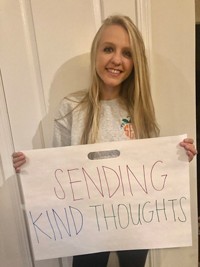Advertisement
Grab your lab coat. Let's get started
Welcome!
Welcome!
Create an account below to get 6 C&EN articles per month, receive newsletters and more - all free.
It seems this is your first time logging in online. Please enter the following information to continue.
As an ACS member you automatically get access to this site. All we need is few more details to create your reading experience.
Not you? Sign in with a different account.
Not you? Sign in with a different account.
ERROR 1
ERROR 1
ERROR 2
ERROR 2
ERROR 2
ERROR 2
ERROR 2
Password and Confirm password must match.
If you have an ACS member number, please enter it here so we can link this account to your membership. (optional)
ERROR 2
ACS values your privacy. By submitting your information, you are gaining access to C&EN and subscribing to our weekly newsletter. We use the information you provide to make your reading experience better, and we will never sell your data to third party members.
Environment
Our world is a worse place
by Bibiana Campos Seijo
September 21, 2019
| A version of this story appeared in
Volume 97, Issue 37
“Adults have made the world a worse place.”
“It’s normal for us now to grow up in a world where there will be no polar bears, that’s just how it is for us now, it’s different than it was for you.”
“Climate change is like Thanos, wiping out half the world so the rest can survive . . . we are being sacrificed.”
These are comments from teenagers and children as young as 10 and as geographically dispersed as the UK and the Maldives that took part in interviews with Caroline Hickman, a psychotherapist and teaching fellow at the University of Bath. She was writing for the Conversation, a nonprofit news outlet, ahead of Climate Week, an annual event that takes place alongside the United Nations General Assembly session and gathers global leaders to showcase and discuss climate action. In her piece, she examines the outcome of her research into how young people feel about the planet and their futures.
As the sample comments above illustrate, anger is one of the main responses to what young people perceive as a lack of action by the adults around them when it comes to climate change. Frustration and a sense of injustice also come through strongly. Although the children and teenagers were empathetic for living creatures, they have sadly come to normalize the loss of biodiversity and events such as the extinction of species around them. Heartbreaking.
Young people see a clear disconnect between what we say and what we do—you’ve seen the term cognitive dissonance repeated often in the media referring to this phenomenon. Many of them don’t like it, and some are willing to do something about it. You will by now have heard of Greta Thunberg, the Swedish teenager who started a wave of school walkouts to demand climate action. She has spearheaded what is now a growing global activist movement. It demands answers to just one question: Why aren’t we doing more to stop climate change? For Thunberg and the thousands of teenagers around the world who identify with her, getting governments and policy makers to solve the climate crisis is not simply an option. It is an imperative. It is life or death. Literally.
Interestingly, other age groups are finally starting to wake up and demand immediate action. A representative poll of more than 2,000 US residents conducted by television and radio service CBS News found that two-thirds believe climate change is either a crisis or a serious problem, with 28% ranking it as a crisis and 36% as a serious problem. Twenty percent consider it a minor problem, and 16% admitted that they do not consider it a problem at all.
The future is not looking bright when it comes to climate, and we know it. About a month ago, Icelandic scientists held a memorial service for Okjökull, a glacier that once sat on top of Ok mountain and has now practically disappeared.
The future is not looking bright, and the here and now is pretty gloomy too. The planet is choking. In recent weeks we have had multiple reports of wildfires in the Amazon basin, destroying more than 8,000 km2 of rain forest. Last week, Indonesia was also burning. The fires there destroyed already-sensitive rain forests along the islands of Borneo and Sumatra, where dozens of endangered species live. In both cases, the fires are thought to be set intentionally to clear ground for agriculture or cattle.
Climate Week has brought the conversation to the fore, and protests and demonstrations are planned for cities such as New York and Washington, DC, as part of a global climate strike. The status quo of “wait and see” won’t do anymore. Our children won’t let us get away with inaction. They demand that we give them a future and leave the world a better place. They shouldn’t have to do that.
Views expressed on this page are those of the author and not necessarily those of ACS.



Join the conversation
Contact the reporter
Submit a Letter to the Editor for publication
Engage with us on Twitter